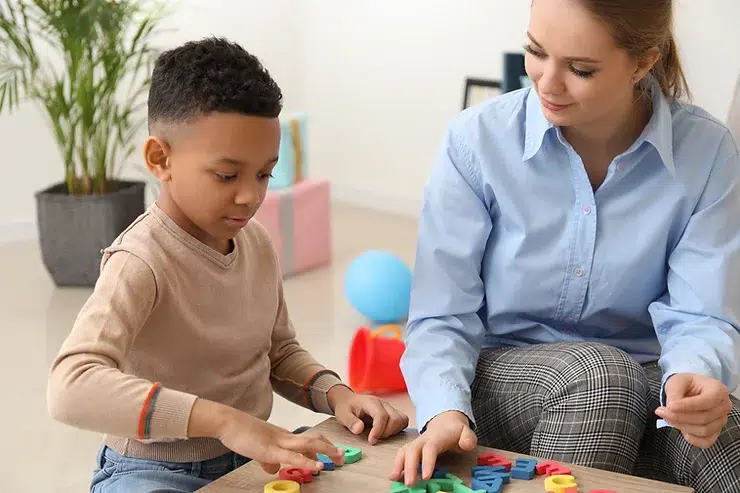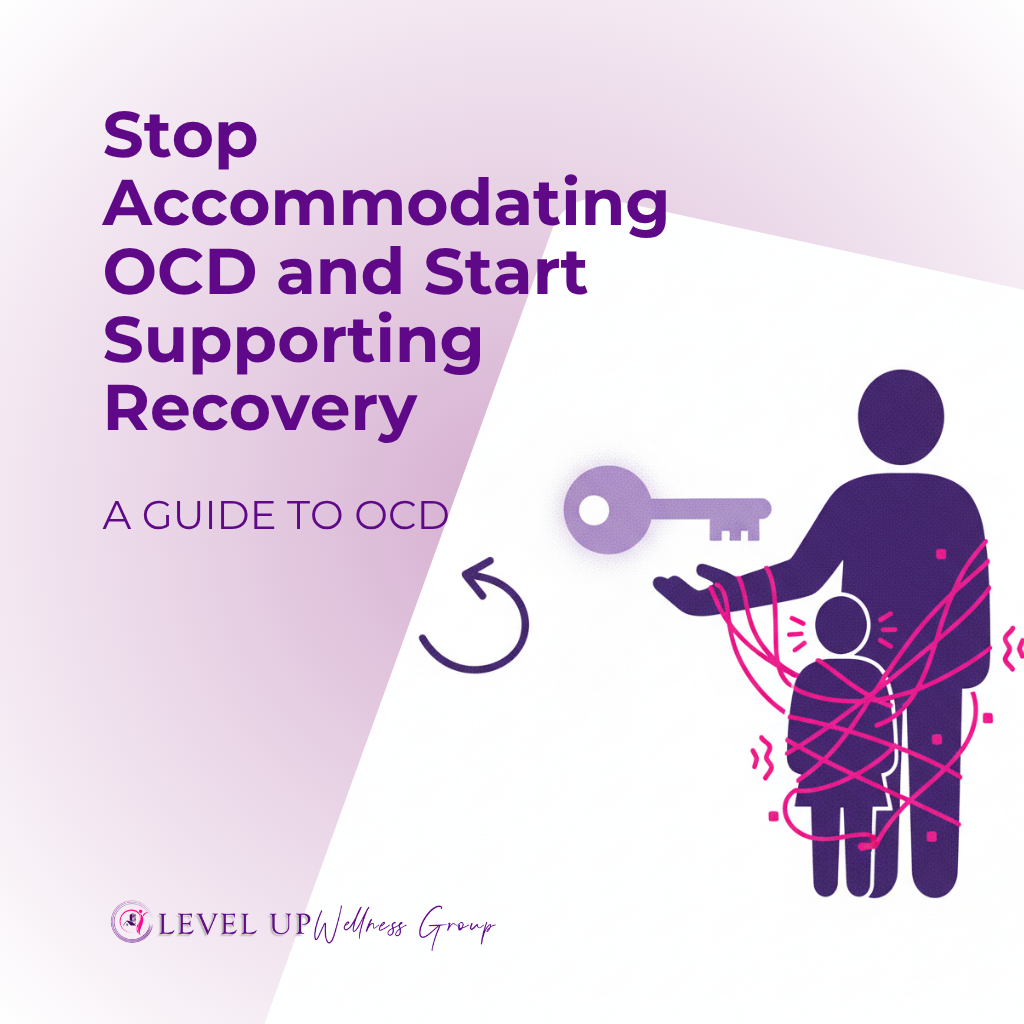A Different Kind of Learner
At the age of 6, my son was diagnosed with dyslexia. Having a family history of dyslexia, my husband and I were prepared for some struggles. We knew we’d face challenges finding the right support and battling misconceptions about dyslexia. What we weren’t prepared for was the constant battle against the idea that dyslexia is a limitation. The struggle of battling the notions that dyslexia was a death sentence, the struggle of honestly everything. It’s sad to say, but in the world, everyone seems to make dyslexia such a bad thing to have.
I never saw the bad in my son. I saw the strengths he has that I never had. I saw the power in his mind when everyone said he wasn’t doing good at school. I saw a bright boy that was in a system designed to fail him. Designed to break him because he wasn’t what they considered normal. Dyslexia is a super power. If only the world could see it that way.

The Fight for the Right Support
Finding the right diagnosis and support for my son was an uphill battle.
Early Diagnosis Struggles
Preschool teachers weren’t familiar with dyslexia, and getting a diagnosis required waiting until he was older. Countless calls to psychologists yielded nothing but rejections due to his age. This experience fueled my determination to be my son’s advocate.
A Beacon of Hope
A special program in Calgary offered a glimmer of hope. While they couldn’t diagnose him due to provincial regulations, their insights into dyslexia as a strength were transformative. They explained how dyslexic brains process information differently, often with exceptional visual-spatial abilities. This newfound understanding empowered me to see my son’s dyslexia in a new light.
Beyond Reading and Writing: The Impact of Dyslexia
Dyslexia’s influence goes far beyond reading and writing difficulties.
Seeing the World in 3D Images
My son perceives the world differently. He visualizes words and concepts in 3D images, making traditional reading methods challenging.
The best way I can explain this is by taking this one sentence: “the black cat jumped the fence”, and creating a 3D figure for each word.
The – doesn’t have an image
Black – could be a smear of black or maybe something you saw in black. For this we will use a smear of black.
Cat – would be a 3D image of a cat.
Jumped – this is tricky you could see yourself jumping or maybe the cat jumping. For this we will use yourself jumping.
Fence – you will see the image of a fence.
Your sentence is now a smear of black, cat, yourself jumping, fence. As you can tell the sentence now makes no sense. This is my son’s world every day for every word. Once you start really thinking how many words have images, you will notice how many don’t. How do you explain “don’t”? What about “can’t”? Can you come up with an image for “it”?
This unique way of seeing the world can also make processing changes difficult. Simple things like a substitute teacher or a trip to a different beach can be overwhelming for him.
Finding Strength in Differences
Despite these challenges, my son’s dyslexia is also his strength. His visual-spatial thinking allows him to excel in areas many find difficult. Seeing the world differently fosters creativity and problem-solving skills. My husband’s family was lucky enough to find an amazing place in Calgary that taught my husband many tricks to support his dyslexia. Helped him to read better. Taught my husband that he wasn’t what the school said he was. He wasn’t slow or lazy. They taught him that dyslexia was a gift and a superpower. My husband has thrived in life, making his mark on our world. He is an example for our son to follow.
My husband’s success story as a thriving dyslexic adult is a constant source of inspiration for our son.
We went to this magical place in Calgary when our son was about 4 or 5 years old. We were there looking for answers. We needed to know how to help our son and to see if they thought he was dyslexic. I am not dyslexic, I had no clue what I was looking for. It was the first place I had ever heard dyslexia being spoken of as a gift. That a dyslexic was powerful. I learned that a dyslexic’s brain works faster than mine. That they process faster. They are able to see things as if they are being built right in front of them. They spent some time with our son and suspected he was dyslexic, however, they couldn’t diagnose as per the Alberta government. I was shocked. How could a place so wonderful not be able to diagnose.
Dyslexia and School
When we got home, I started doing my own research. I tried to find anything I could on dyslexia. I couldn’t find anything. If I did find something, it always said “read more to your child”, which I already knew was not the answer.
Our son was attending preschool in a full French program. I asked the teacher at that time if she thought he could be dyslexic. She looked at me and told me she didn’t know what dyslexia was. I was shocked that a teacher wouldn’t know what this learning disability was. I was naive to assume others would know what we were talking about. At the time, I had read a book called “The Gift of Dyslexia” by Ronald D. Davis. I lent it to his teacher hoping to help her understand my son better. This ended up helping her with many of the other students.
In kindergarten, I shared the book again with his new teacher. Everyone we talked to seemed to be unaware of dyslexia. I started making phone calls to have my son diagnosed as the school would not help us until he was in grade 3. I called countless psychiatrists and psychologists that all said they did the testing we needed, but they all refused to help as he wasn’t old enough. I remember talking to one receptionist… this was my last resort. When she told me no I lost it. “So you’re telling me that I have a child that needs help and you won’t help us? How am I supposed to get him help? Where do I go from here? Do you know how many places I have called?!” She was silent. I apologized and explained that they were my last chance, my last option. After talking a bit more, she informed me they would take my son they just need to wait until May for his 6th birthday. I was on a high! I had finally found help and some answers.
Getting Diagnosed
We brought him in to do his testing for dyslexia. At the end of many hours, we were finally going to hear what they had to say. I was a bundle of nerves. Maybe I was wrong, maybe my son isn’t dyslexic. But I was so sure he was. I wondered; what help they would offer, how they would explain everything. I was just nervous. When we got in, the psychiatrist read us his report. Finally, at one point he goes “I am really sorry to have to say this, your son is severely dyslexic. It will most likely get worse. I am so sorry that this is happening to you guys. He will struggle a lot at school”. Now I was mad. How dare he make it sound like this would be the end of the world for my son. He just kept apologizing. I finally interrupted him. “Unlike you and the rest of the world, I know this is not a death sentence. My husband is dyslexic and he has thrived in life. Our son will be amazing too. We just needed this diagnosis to prove to the school he’s dyslexic”. Now it was his turn to be shocked. Again, he started to apologize. The diagnosis was all we got. There was no help to be given.
Understanding my child
I began to try and search for things that would help my son. I understood that technology would be a godsend to my son. I tried finding games that were specific to literacy, as that was where he struggled the most. I could find nothing. I even went to Education Station hoping they would know something that could help. There was nothing. If I did find something that could help us it was in English and I needed it in French.
I learned that my husband and I were my son’s best and only advocates. I started to ensure I was heard at the meeting with his teachers. I pushed to have him coded even when they told me he was too young to have the diagnosis. I pushed for the things he needed and I didn’t stop. I would talk to other parents about dyslexia and how it affected my son. Through talking to other parents, I helped them find their way to getting their own children diagnosed. They found answers through us even when I thought I didn’t have enough answers. This year at school my son has gotten a computer and uses speech-to-text to write his stories and paragraphs. The first time he used it he turned to his teacher and said I can FINALLY tell my story. He was proud of himself when he got home. He had a light to him. Finally a step forward for my son. My son’s reading is currently at a kindergarten level. Reading is his least favorite thing to do. We continue trying to help him progress.
Dyslexia and difficulties with changes
For my son, his dyslexia is not just difficulties with reading and writing, it is also difficulties with time changes. He sees everything in images. Here’s an example of how his mind works:
I remember when he was about 3 or 4 years old. He asked me to get him a juice. This is our conversation.
“Maman I want what you always get,” he said. “I get you a lot of things. Can you be more specific?” I asked. “You know this Maman! It’s about this tall (showing me with his hands a space of 6 inches) and it’s round about this big”, again showing me with his hands. By this time my son is getting mad that I’m not understanding him. Because for him, it’s obvious what this item is. For me, I didn’t have a clue what he was talking about. With tears in his eyes… “MAMAN!! YOU KNOW THIS! YOU BUY IT ALL THE TIME!” He yells. “My son, Maman is just not understanding how you are explaining it to me. Can you tell me more about it?” I ask. As he rolled his eyes, I noticed his little fist are balled up on his side. I knew I had to figure this out or he would be hurt I didn’t. He takes a big breath… “It has black and white on it. Black bottom, white top” he says. I just look at him with a blank stare. I still don’t know and he knows it. He stomps his feet in place. “MAMAN! YOU KNOW IT!” he yells. “My son, I’m sorry. Maman still isn’t sure what you want from the store. Is it a candy?” I ask. “No Maman” he replies. “Is it a juice?” I ask. He looks at me with a confused look. “Is it something you drink?” I ask, hoping I am getting closer to an answer. “Yes Maman!” He says. Now I’m racking my brain for all the juices I’ve bought and it finally hits me.. XXX Vitamin water… It has a black and white label, pink purplish juice. The sizing was pretty close. I look at my son and ask “Do you want vitamin water? The juice Maman always gets?” “Yes Maman! See I told you, you knew what it was!” He says.
Now, you might ask why this is so important. This one simple conversation took 20 minutes. As I previously stated, he has a difficult time with change. When he was younger the change of seasons would change his attitude and the way he behaves. When he started school we noticed that when he had days off without notice, he would be affected. Outburst occurred more frequently. His sleep would be affected. His concentration wouldn’t exist. We started giving him two weeks notice when school would be ending or starting. That way he knew it was coming. If he had a substitute teacher that would affect him. Even the schedule for the day changing would affect him. He would come home exhausted. Saying how horrible his day was. I wish I could express all the ways my son is affected by change. That would honestly be impossible.
I had gotten a call from my son’s school. They wanted me to come get my son as he was sick. When I arrived at school and saw my son I noticed he wasn’t sick. I sat next to my son and asked him what was going on. At first, he wouldn’t tell me anything. I started asking my son questions, hoping I would find some answers. “Did something happen with your friends my son?” “No” he said. “Did you get mad at something?” I asked. Again he replies no. I sat there silent for a few minutes trying to figure out what could have happened. He loved being with his friends at school. I asked him what his teacher had him doing? He replied “my teacher isn’t here we have a substitute today. She does everything out of order. Everything is so different.” There it was. Change, the hardest thing for him to deal with. “Change is hard isn’t it.” I ask. He just looks at the floor. I kept going. “Maman has a hard time with change too. But you know great things can happen with change.” I see him peek at me. “I wonder how your substitute teacher feels. She must be so nervous.” I say. Hoping that his love of people will help him thru this. “Why do you say that Maman?” He asks. “Think about it. She’s in a new place with students she doesn’t know. She is trying her best. And now she might be sad because you aren’t in class. Do you think she could be sad?” he replies “maybe Maman.” I could see he had started to look like himself. I say “do you think you could give her a chance to teach you? You might make her day better. I’m sure your friends miss you too.” I could see he was thinking about it. He looks at me and says: “I think I should go back to class Maman. I feel a lot better now.” “Great choice buddy I will let the secretary know.” I walk over to the desk and explain to the secretary that he would like to return to class. She looks at him, then at me. “He doesn’t look sick anymore,” she says. Her face said it all she couldn’t believe he wasn’t sick. I replied: “Due to his dyslexia, he has a hard time with change. Having a substitute teacher is really hard on him.” This was 30 minutes at the school with him that day.
Outings can be affected as well. My son was with his grandparents for a week. The first 5 days they went to ‘Main’ Beach, but they called it the beach. On day 6 they decided to go to ‘Pelican’ Beach, but they told my son they where going to the beach. When they got to Pelican Beach my son fell silent as the image in his head did not match what he saw. He acted so differently, that my sister-in-law called me to ask for help. It took me at least 30 minutes of talking to my son to get him readjusted. Those that aren’t around my son 24/7 have a hard time dealing with him in these situations. He becomes silent and refuses to answer them. I wish I could express all the ways my son is affected by change, but that would honestly be impossible.
Changes will always be a challenge for my son. He has gotten better at dealing with changes. We have had many conversations about change. Some as simply as, if you water a plant it changes into a flower, to help him understand that not everyone will do things the same way all the time. Some days are easier than others.

End note
I have heard some people say that dyslexia no longer exists. To me, it does very strongly in my son. I wish I could give everyone a glimpse into dyslexia so they could see it’s not just reading or writing. For everyone to see the beauty and the power in it. I wish our system was built more for my son. I wish the system saw the strengths in dyslexia, not the weakness. I will never believe my son to be lazy or dumb. He’s one of the brightest kids I know. To the parents of children with dyslexia; never stop fighting for your kids. Never stop until you get what they need. Be their voice. Research everything you can about dyslexia. Know it like the back of your hand. Educate those around you. Be a force to be reckoned with. Never stop fighting because we will forever have to fight for them.




